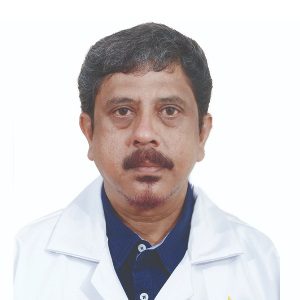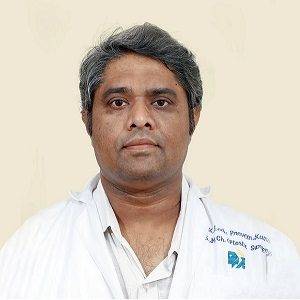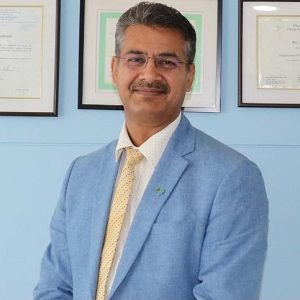Best Doctors in India for Tummy Tuck
- Plastic Surgeon and Cosmetic Surgeon, Chennai, India
- Over 14 years’ experience
Profile Highlights:
- Dr. Kannan Prema is a bright young cosmetic surgeon in Chennai, working on aesthetics.
- With over 14 years of experience as a board-certified cosmetic surgeon, Dr. Kannan Prema is the ideal choice.
- She provides surgical treatments like breast reduction, Rhinoplasty, removal of skin tags, buttock liposuction, etc.
- Plastic Surgeon and Cosmetic Surgeon, Chennai, India
- Over 16 years’ experience
Profile Highlights:
- Dr. Kumaresan M N is one of the finest Cosmetic Surgeons in Chennai with nearly 16 years of experience in the field.
- He ensures the best aesthetics for his patients.
- The Tamil Nadu Medical Council has had him as a member since 1992.
- Plastic Surgeon and Cosmetic Surgeon, Chennai, India
- Over 22 years’ experience
Profile Highlights:
- Dr. Leela Praveen Kumar is one of the top Plastic Surgeons in Chennai with more than 22 years of dedicated experience.
- The doctor is frequently visited by the patients for Breast implants, Vaser Liposuction, rhinoplasty, facelift, Breast Reduction, Bariatric Surgery, Microsurgery, Body contouring, Hand surgery, and Onco Reconstruction.
- Dr. Leela Praveen Kumar also manages a non-Surgical fat reduction procedure, known as Cryolipolysis.
- Plastic Surgeon and Cosmetic Surgeon, Chennai, India
- Over 40 years’ experience
Profile Highlights:
- Dr. Sundararajan M S is one of the best Plastic Surgeons in India, having practiced for more than 40 years.
- The doctor offers lipo filling, body contouring, non-Surgical facelift, tummy tuck, implants, etc.
- Dr. Sundarajan bagged the Best paper award in 2008 & 2013 and the other Gold Medal for his contribution to the field.
- Plastic Surgeon, Cosmetic Surgeon, Gurugram, India
- Over 25 years’ experience
Profile Highlights:
- Dr. Aditya Aggarwal has been an eminent figure in the Department of Plastic, Aesthetic, and Reconstructive Surgery.
- Throughout his career, he has invested in microsurgical procedures of physical amputation across the globe.
- He has worked in India, Berlin, Taiwan, and Japan, and his bright career echoes from each corner of the world.
Best Hospitals in India for Tummy Tuck
Narayana Superspeciality Hospital, Gurugram
- City: Gurugram, India
Hospital Highlights:
- Situated near DLF Cyber City, Gurugram, Narayana Superspecialty Hospital is one of the top medical facilities in the Delhi NCR region, catering to the needs of the people. Known for its commitment to quality medical care and patient service, the hospital is a state-of-the-art facility with planned and well-equipped sections, which includes a spacious OPD area as well as comfortable patient rooms.
- It is the closest super-specialty hospital from Indira Gandhi International Airport towards Gurugram, and also the nearest super specialty hospital from DLF Cyber City. It is also close to major residential areas in Gurugram.
- It is part of the renowned Narayana Health Group. Established in 2000, by Dr. Devi Shetty, a renowned cardiac surgeon, it has grown to be one fo India’s leading healthcare groups.
Sir Ganga Ram Hospital, New Delhi
- City: New Delhi, India
Hospital Highlights:
- Sir Ganga Ram Hospital, New Delhi is known to provide the latest medical procedures with the latest technology in all of its units.
- The hospital has a team of reputed doctors, nurses, and healthcare professionals that ensure that patients receive quality care at affordable costs.
- Staffed with a team of highly qualified doctors, dedicated nurses, and paramedical and non-medical staff, the hospital aims to lead in healthcare delivery, medical education, training, and research.
- As per the vision of the founder, the hospital also provides free treatment to the economically weaker sections of society.
- Sir Ganga Ram Hospital also provides training to young doctors under the Diplomate in National Board(DNB) program. The DNB program at the hospital was started in 1984 and it is known for currently running the maximum number of DNB specialties in the country. It also has the distinction of having the first bone bank in India.
KIMS Hospital, Hyderabad
- City: Hyderabad, India
Hospital Highlights:
- KIMS Hospital (a brand name of Krishna Institute of Medical Sciences) is one of the largest and best multi-speciality hospitals in Hyderabad. The hospital provides various treatments to an enormous number of patients.
- The hospital has a capacity of more than 3000 beds. KIMS Hospitals offers different healthcare services in more than 25 specialities and super specialities.
- The hospital is equipped with modern medical equipment and technology. It has robotic equipment to provide minimal invasive techniques for patients.
- The hospital is aimed at providing world-class healthcare facilities and services at an affordable cost for patients.
- The various specialities and departments of the hospital include neurosciences, gastroenterology & hepatology, robotic science, reproductive sciences, dental science, oncological sciences, organ transplantation, heart and lung transplantation and mother and child care.
Fortis Hospital, Shalimar Bagh
- City: New Delhi, India
Hospital Highlights:
- Fortis Hospital in Shalimar Bagh is a multi-super specialty hospital that strives to provide world-class patient care by leaving no stone unturned.
- Fortis, Shalimar Bagh, with 262 beds and a 7.34-acre footprint, provides the best level of medical care through its team of doctors, nurses, technicians, and management professionals.
Reliance Hospital, Mumbai
- City: Mumbai, India
Hospital Highlights:
- Reliance Hospital is one of the best super-specialty care hospitals in Navi Mumbai.
- The main purpose of this hospital is to become a trustworthy place for the best health and hope for society. The hospital is well connected to the suburbs of Mumbai and Navi Mumbai.
- The hospital has various specialty departments, viz., Accident & Emergency, Anesthesiology, Dental Services, Dermatology, Diabetology, Dietetics Nutrition, Endocrinology, ENT, Gastroenterology, General Surgery, Gynaecology And Obstetrics, Hepato Pancreato Biliary Surgery, Infectious Disease, Internal Medicine, Interventional Radiology, Laboratory Medicine, Minimal Access Laparoscopic Surgery, Nephrology, Neurosciences, Opthalmology, Orthopaedics, Paediatrics, Pain Management Palliative Care, Physical Medicine Rehabilitation, Plastic And Reconstructive Surgery, Psychiatry, Pulmonary Medicine, Radiology, Rheumatology, Transplant, Urology Andrology, Vascular Surgery
Lilavati Hospital & Research Centre, Mumbai
- City: Mumbai, India
Hospital Highlights:
- Lilavati Hospital & Research Centre is India’s premier multi-speciality tertiary care hospital and has been recognised as a global medical excellence centre.
- Lilavati Hospital & Research Centre has built an unrivalled level of trust with its patients over the years, thanks to a solid foundation that comprises cutting-edge facilities, the best medical competence, research, education, and charity endeavours.
- The hospital is quite proud of the fact that it now serves patients from all kinds of backgrounds, not just from the United States but from all around the world.
- The hospital has a total of 323 beds, one of the largest Intensive Care Units (ICUs), 12 Operation Theatres with modern amenities, over 300 consultants, and almost 1,800 personnel.
Venkateshwar Hospital, Dwarka, New Delhi
- City: New Delhi, India
Hospital Highlights:
- State-of-the-art technology and devoted healthcare professionals have been brought together under one roof at Venkateshwar Hospital to provide genuine medical care. The hospital’s professionals work together as a team to deliver the best possible treatment to their patients, using the most sophisticated equipment and information technology.
- Venkateshwar Hospital’s mission is to attain global excellence in healthcare by employing evidence-based, ethical clinical practices and cutting-edge technology by a team of highly skilled experts.
MGM Healthcare, Chennai
- City: Chennai, India
Hospital Highlights:
- Located in Chennai, India, MGM Healthcare is a top multispecialty hospital that provides all medical services under one roof.
- Since its founding in 2019, MGM Healthcare has quickly become a leading national referral centre, creating several innovative flagship initiatives.
- MGM Healthcare combines next-generation medical and digital technologies to provide better patient results.
- With 12 centres of excellence, more than 400 inpatient beds, 100 intensive care unit beds, and 24/7 emergency care, MGM Healthcare leaves no chance in redefining the patient experience in Chennai.
- MGM Healthcare boasts 250+ expert doctors across 30+ departments, including Cardiology, Pulmonology, Neurology, Obstetrics & Gynaecology, and more.
- They house 12 specialized Centres of Excellence, including Neurosciences, Orthopaedics, and Multi-Organ Transplantation.
- Their team of doctors, nurses, and paramedics works together to give every patient individualized treatment.
Tummy Tuck
Tummy tuck also termed as abdominoplasty, is a cosmetic surgical procedure for flattening the abdomen by removing extra fat and skin; to improve its appearance. It tightens the walls in the abdominal area. Although it is different from liposuction, one can choose to get liposuction along with a tummy tuck.
You can choose to go for this procedure if you have excess fat or skin around the area of your belly button or a weak lower abdominal wall. A tummy tuck also helps to boost your body image.
Purpose
People can choose to go for a tummy tuck for a number of reasons. People with excess fat or poor skin elasticity or weakened connective tissue in the abdomen usually choose this procedure. These conditions are usually caused by significant changes in weight, pregnancy, abdominal surgery or aging.
Along with removing loose and excess skin and fat, it can also remove stretch marks and excess skin in the lower abdomen below the belly button. A tummy tuck however won’t be correcting any stretch marks outside of this area.
This procedure can also be combined with other contouring cosmetic procedures such as breast surgery. You can also consider this procedure after you have liposuction, as liposuction only removes the tissue under the skin and fat but not any excess skin.
It is to be noted that everyone isn’t the right candidate for a tummy tuck. Your doctor might caution against it if you are planning to lose a significant amount of weight, have a severe chronic condition, like diabetes or heart disease or if you have had a previous abdominal surgery which caused significant scar tissue.
Preparation
Initially, you will need to talk to a plastic surgeon about the procedure. A surgeon will likely:
Review your medical history- You will need to answer questions about your current and past medical conditions. You need to inform your surgeon if you are taking any medications or have taken any recently. Discuss any surgeries you have had as well.
Discuss your expectations- It is important to explain to your doctor why exactly you want a tummy tuck and what you hope for in terms of appearance after the procedure. Please make sure that you understand the benefits as well as the risks before the procedure. Also keep in mind that any previous abdominal surgery might limit your results as well.
Do a physical exam- To determine your treatment options, your doctor will need to examine your abdomen. He/she might also need to take pictures of the abdomen for your medical record.
Before undergoing the procedure you also need to:
Stop smoking- Smoking decreases blood flow in the skin, thus, slowing down the healing process. It also increases the risk of tissue damage. Therefore, if you smoke, your doctor might recommend that you stop doing so before your surgery and during the recovery period.
Avoid certain medications- Few medications such as aspirin, herbal supplements and anti-inflammatory drugs will need to be avoided.
Maintain a stable weight- Ideally it is important to maintain a stable weight for at least 12 months before having a tummy tuck. If you are overweight, you will need to lose weight before this procedure. Any weight loss after the procedure might diminish the results.
Take medication to prevent complications- Shortly before the procedure, you’ll need to begin taking an anticoagulant for preventing blood clotting.
Arrange for help during recovery- Make plans with someone for driving you home after you leave your hospital and ask if they can stay with you for at least the first night of your recovery at home.
A tummy tuck is usually done in a hospital or sometimes at an outpatient surgical facility. During the procedure, you will be under general anesthesia, which will make you totally unconscious and unable to feel any pain. Sometimes, you also might be given a pain-relieving medication and be moderately sedated.
Procedure
The procedure can take from two to five hours depending on the technique being used.
With a complete tummy tuck, your surgeon will first make two incisions. The first one will be from the hip bone on one side to the hip bone on the other side of the body, which is near the public area. The other incision will be around the navel.
If you are having a partial tummy tuck, your surgeon will be making one or two smaller incisions. This can be done laparoscopically or via an open procedure.
Once the incisions are made, the skin is separated from the abdominal muscles. Excess fat is removed from the abdominal area.
If they are separated, the abdominal muscles might need to be pulled together and stitched into place. Then the separated flap of skin is stretched over the abdominal area; after this, excess skin is removed for a tighter appearance. If your surgeon included the navel in the incisions, it is reconstructed in a position where it can look natural.
Sometimes, a surgical drain might be inserted under the skin for collecting any excess fluid. This will be staying in place for many weeks before its removal. Next, the incisions are closed with sutures. A sterile dressing is then applied over the area as well.
After the procedure
Once the procedure is complete, your anesthesia is removed or reversed. If you have a tube in place to help you breathe, this will be removed so that you can breathe on your own before leaving the operating room.
Next, you will be taken to a post-operative area where your vital signs will be monitored. It will several hours before you will be able to get up and walk again. Generally, you can go home or stay in the hospital according to your plan prior to the surgery.
Recovery from any type of tummy tuck can take two weeks to two months. Generally, if you have a large wound and/or a significant amount of fat and skin removed, then your recovery will take longer, as compared to when you have a small wound and a smaller amount of tissue removed.
Risks
There are multiple risks and complications which are associated with the tummy tuck procedure. Some of the risks include:
- Swelling and pain around the surgery area
- Scarring
- Skin discoloration
- Seroma (fluid accumulation)
- Changes in skin sensation
- Bleeding under the skin flap (rare)
Before the procedure, it is always important that you discuss the possible risks with your surgeon.















